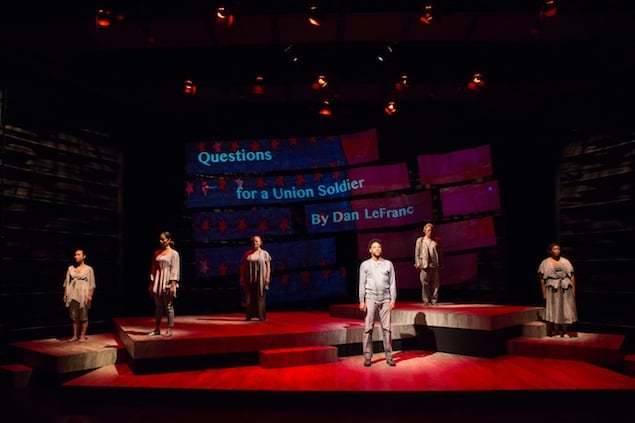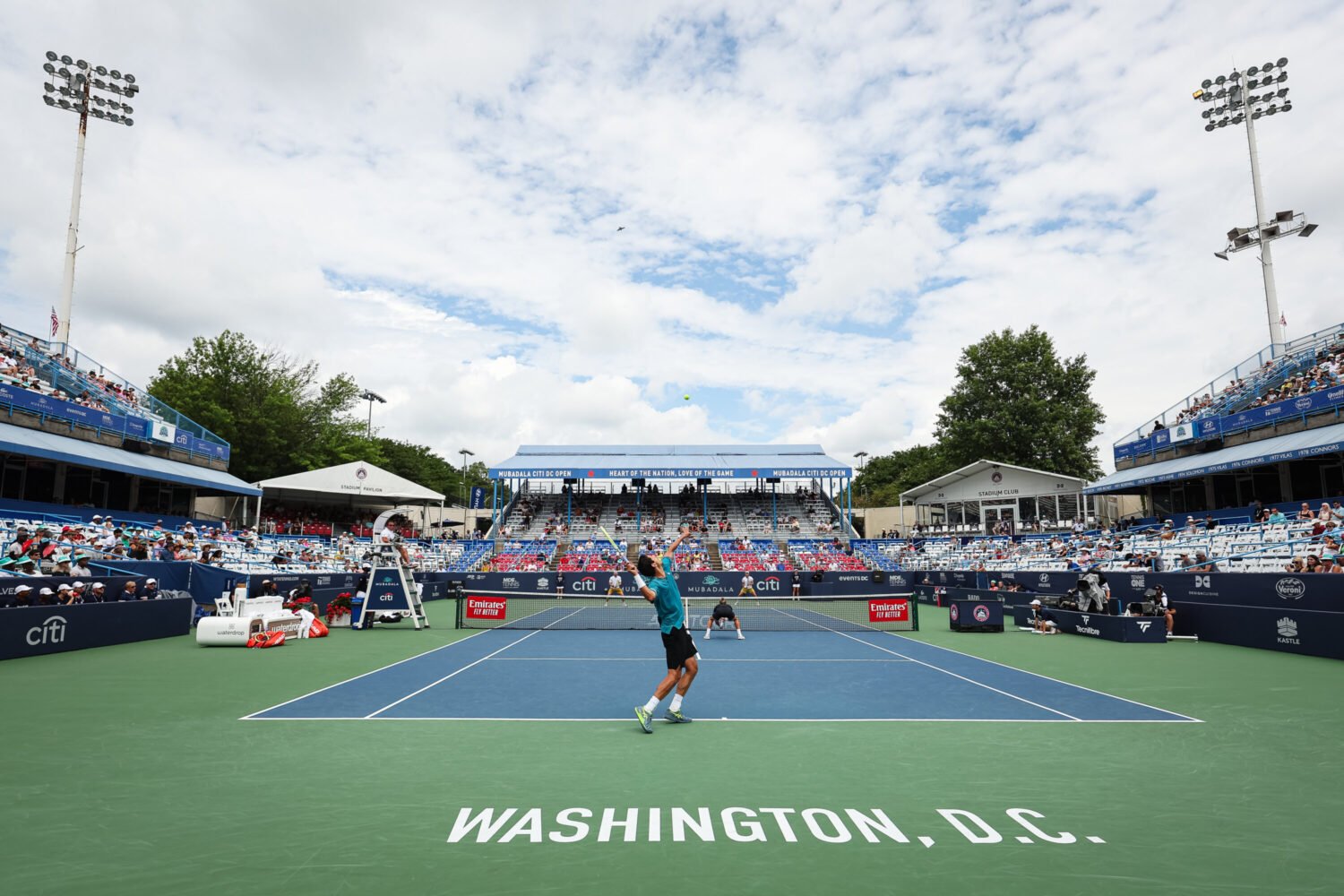Early on in Our War at Arena Stage, one of the show’s many characters declares he’s “bringing the color to the black and white picture.” It’s a statement that applies to the production as a whole, a reminder that “race” in America today applies not just to black and white but to every shade in between.
Our War comprises 25 new monologues by as many playwrights, each examining the Civil War from a distinct, rarely expressed perspective that attempts to expand (and subvert) the traditional historical narrative. Director Anita Maynard-Losh divided the monologues into two sets of 18—“Stars” and “Stripes”—performed on alternating nights. Also shaking up the usual theater format is the presence of “notable Washingtonians” such as Mayor Vince Gray and Justice Ruth Bader Ginsburg, who recite a monologue of their choosing at select performances.
The production is part of Arena Stage’s participation in the National Civil War Project, and Maynard-Losh used it as a chance to explore one of America’s greatest conflicts from vantage points not found in history books. “With a collection of playwrights that is more than half women and a great majority people of color, we get quite different points of view,” the director told Washingtonian. Each author had free rein to determine the time period and voice of his or her work, and Maynard-Losh then arranged them thematically rather than chronologically. The stage is simple—just a raised platform, with a backdrop of movie screens on which the name of each piece and scribe is displayed, along with occasional video clips—and six actors, clad in simple, neutral-toned outfits, take turns embodying each role.
The show, as a whole, works quite well, and is often surprisingly funny; in the space of a few minutes, the majority of the works manage to conceive of a whole world and a distinct, fully realized character: a bubbly, Rand Paul-quoting fourth-grader, an ebullient Indian-American female soldier, a former slave. The cast is as diverse as the monologues, and all the actors succeed admirably in selling the various characters by distinct gestures and vocal inflections (though the accents are, on occasion, a bit iffy). There’s a sense that despite the shortness of each piece, the same amount of thought went into each character’s backstory as would in the case of a full-length play. (This has the unfortunate side effect of making the guest monologues stand out even more; while not ruinously distracting, they do disrupt the otherwise relatively uniform flow of the production.)
Some of the monologues proved more affecting than others, particularly ones set in the present day and told from the perspective of recent American immigrants, such as Aditi Kapil’s “Moo” and María Agui Carter’s “Fourteen Freight Trains.” Both involved illegal immigrants—one Indian, one Hispanic—who join the armed forces to try to secure a permanent place for themselves in the US. Both are all too aware of their own mortality, of the fact that they’re putting their life on the line for a country that might not recognize their contributions until it’s too late, and both accept their fate with open eyes. Even if it’s a bit of a heavy-handed depiction of the immigrant experience, it serves to draw a stark and sad parallel between the issues that divided the nation in the 19th century and the racial inequalities that continue to stitch themselves into the fabric of US life. As another character points out in a monologue aptly titled “Times Have Changed,” society has shown progress—just not much.
Our War is at Arena Stage through November 9. Running time is about one hour and 30 minutes, with no intermission. For tickets ($40 to $50) and guest-star information, visit the theater’s website.















